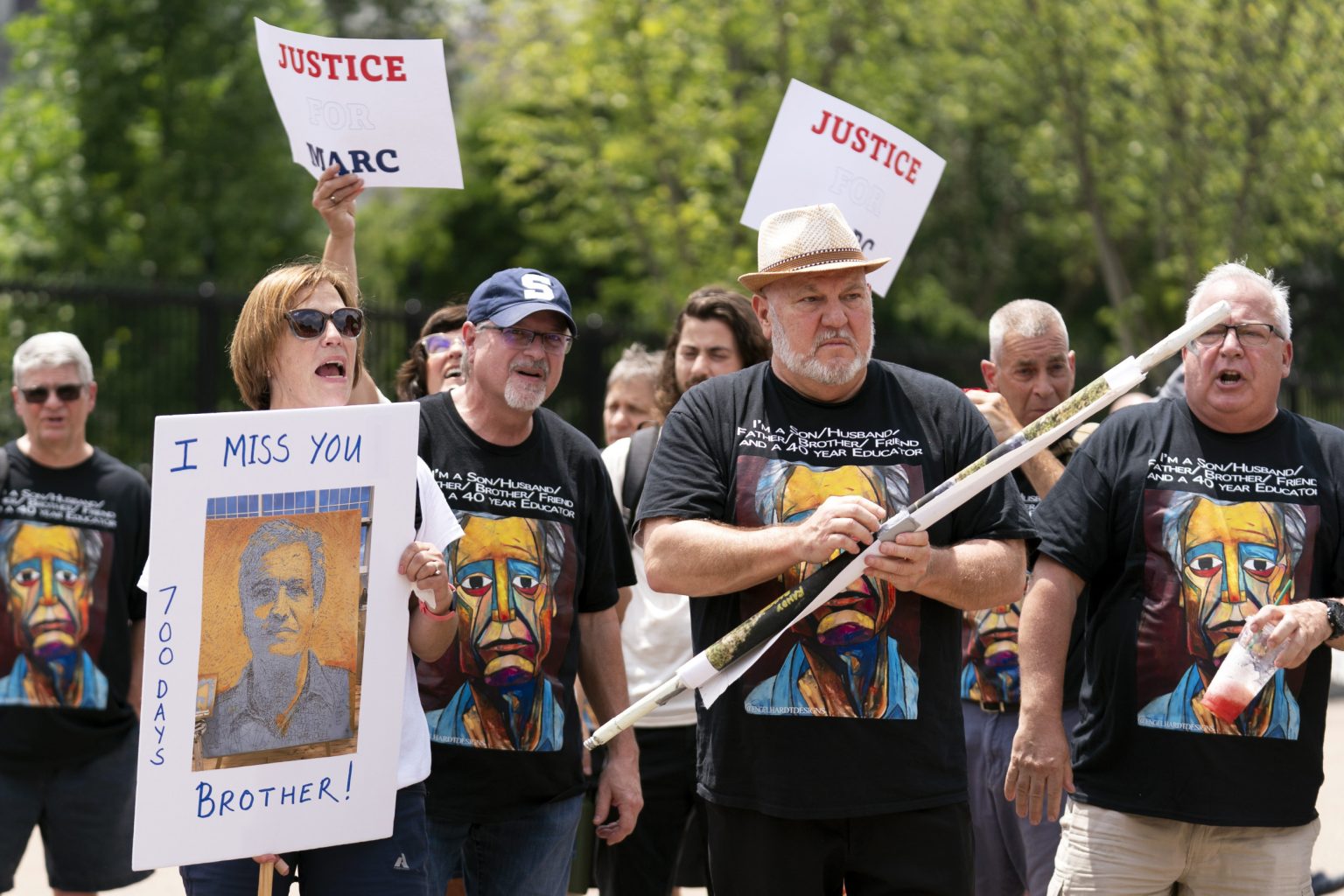Marc Fogel, a 63-year-old history teacher from Pennsylvania, has been officially designated as “wrongfully detained” by the United States government, marking a significant turning point in his case. Fogel’s ordeal began in August 2021 when he was arrested at a Moscow airport with approximately 17 grams of cannabis. While Fogel maintained that the marijuana was medically prescribed to treat chronic pain, Russian authorities charged him with “large-scale drug smuggling,” ultimately leading to a 14-year prison sentence in June 2022. This harsh sentence, handed down in the same courtroom where WNBA star Brittney Griner received her nine-year sentence on similar charges, sparked outrage and concern among Fogel’s family, supporters, and U.S. officials.
The “wrongfully detained” designation is a crucial step in the U.S. government’s efforts to secure Fogel’s release. It signifies that the State Department, after careful evaluation, has determined that Fogel’s detention does not meet internationally recognized standards of due process and may be politically motivated. This designation empowers the Special Presidential Envoy for Hostage Affairs to actively engage in negotiations for his release, elevating the case to a higher diplomatic priority. The decision follows a long period of advocacy by Fogel’s family and Pennsylvania Representative Mike Kelly, who have consistently pressed the Biden administration for this designation, particularly after Fogel was excluded from a prisoner exchange in August 2024 that secured the release of Evan Gershkovich and Paul Whelan.
The State Department’s evaluation process for determining wrongful detention involves a multifaceted assessment of various factors. Key considerations include the credibility of evidence supporting the detainee’s innocence, the fairness and transparency of the legal proceedings, and whether the detention appears to be a strategic move by the foreign government to exert pressure on the United States or extract concessions. In Fogel’s case, the seemingly disproportionate sentence for the amount of cannabis he possessed, along with the context of strained U.S.-Russia relations, likely contributed to the State Department’s decision. The fact that he was carrying medically prescribed marijuana further bolsters the argument that his detention is unjust.
The State Department’s official announcement of Fogel’s designation confirms their long-standing efforts to secure his release. While they attempted to include him in the August 2024 prisoner exchange, these efforts proved unsuccessful. The acknowledgment that Secretary of State Blinken made the determination in October 2024 suggests a thorough review of the case prior to the public announcement. This timing, however, raises questions about the delay in designating him as wrongfully detained, given his family’s persistent advocacy since his arrest. The timing of the announcement could be influenced by a variety of factors, including diplomatic considerations and ongoing negotiations with Russia.
Now that Fogel has been formally designated as wrongfully detained, the focus shifts to the U.S. government’s strategy for securing his release. While the specifics of these negotiations often remain confidential for strategic reasons, a prisoner swap with Russia is a likely scenario. Such exchanges involve complex diplomatic maneuvering and require identifying individuals held by the U.S. who could be offered to Russia in exchange for Fogel. The process can be lengthy and challenging, requiring careful consideration of legal and ethical implications, as well as the potential ramifications for future cases of Americans detained abroad.
The Fogel case highlights the complex and often fraught relationship between the United States and Russia, and the precarious position of Americans detained in countries with adversarial relationships with the U.S. It also underscores the importance of diplomatic efforts and advocacy in seeking the release of those deemed wrongfully detained. While the “wrongfully detained” designation is a crucial step, the road to Fogel’s freedom remains uncertain and will likely involve delicate negotiations and strategic decisions by the U.S. government. The ongoing support from his family, Representative Kelly, and the American public will undoubtedly play a vital role in keeping the pressure on for his swift and safe return.

